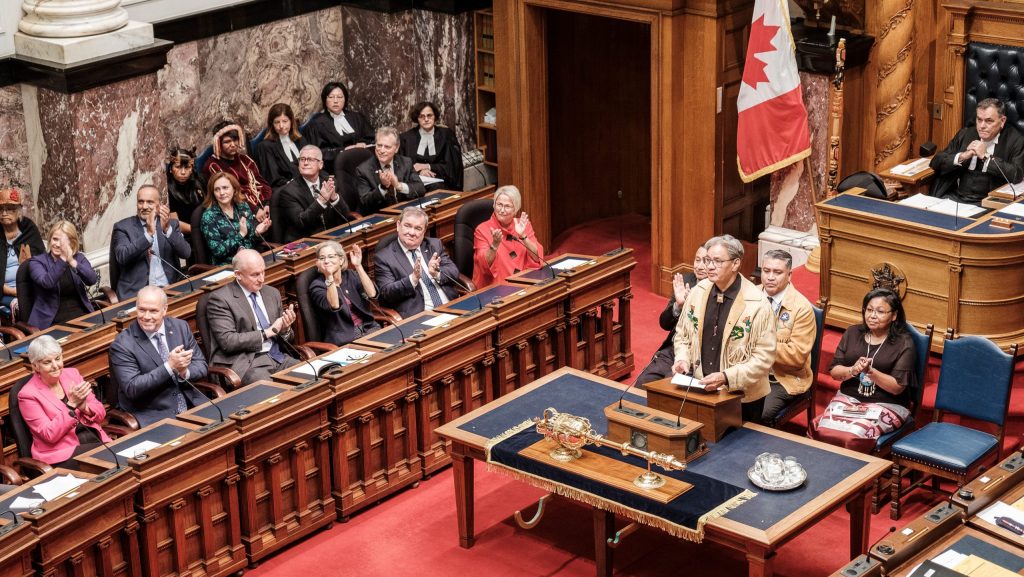Created Equal: What the US can learn from Canada’s Truth and Reconciliation Commission
Justina Giglio July 2, 2024University of British Columbia assistant professor Dr. Tricia Logan joined the show to discuss the ways Canada is attempting to reconcile its history of mistreating Indigenous peoples, and how the U.S. can begin to confront its own history.

British Columbia was Canada’s first province to put the UN Declaration on the Rights of Indigenous peoples into law.
The United States and Canada share a dark history in the mistreatment of Indigenous people. One of the many abuses these governments facilitated was the funding of Indian Residential Schools.
Through church and government bodies, residential boarding schools operated to assimilate Indigenous children into Western European culture. For roughly 160 years, Indigenous children were forcibly removed from their families and communities and isolated from their culture.
Conditions within these boarding schools were dismal. Proper education was neglected and children frequently experienced physical and sexual abuse. Because of this, many children died while enrolled.
In an effort to confront the injustices of the past, Canada established a Truth and Reconciliation Commission. From 2007-2015, the agency worked to give all Canadians a comprehensive look into the residential school system and the experiences of those affected by it. The TRC did so by hosting seven national reconciliation events to gather statements for their Final Report.
In 2015, the Final Report included its findings along with 94 Calls to Action aimed at furthering the process of reconciliation in Canada beyond the TRC’s mandate. At this time, the United States has not engaged in similar reconciliation efforts.
With Canada Day being this week, Created Equal host Stephen Henderson spoke with Dr. Tricia Logan from the University of British Columbia to discuss how far Canada has gone to fix its past abuses, and what the United States can learn from their efforts.
Subscribe to Created Equal on Apple Podcasts, Spotify, Google Podcasts, NPR.org or wherever you get your podcasts.
Guest
Dr. Tricia Logan is an assistant professor at the University of British Columbia and the interim academic director of the Indian Residential School History and Dialogue Centre at UBC. She says that the TRC’s Final Report in 2015 was a call to action for transformative change, and it will take generations to fully reconcile the impact of Indian Residential Schools.
“A lot of the calls to action, some of them are worded that way that they’re looking at seven generations ahead,” she said. “They’re also looking seven generations before, but seven generations ahead of us — and it’s going to take generations of work to, to kind of undo or to try to resolve some of what happened during the residential school eras, and what had happened in that relationship between Canada, its churches, its corporations and Indigenous peoples in Canada.”
Listen to Created Equal with host Stephen Henderson weekdays from 9-10 a.m. ET on 101.9 WDET and streaming on-demand.
